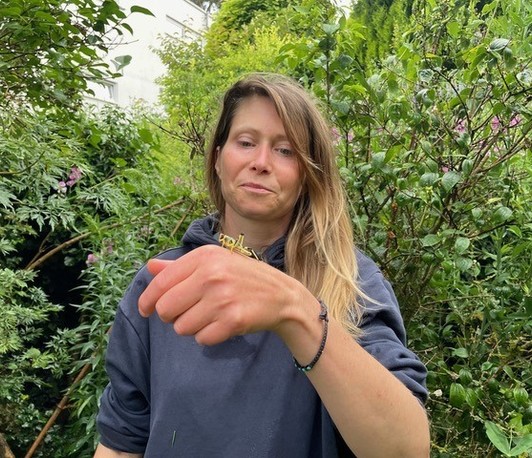Sensory processing and decision making in a social context: From odors to swarm motion in insects
Doctoral defense by Inga Petelski, supervised by Einat Couzin-Fuchs
- Date: Jul 16, 2025
- Time: 11:00 AM - 02:00 PM (Local Time Germany)
- Speaker: Inga Petelski
- Location: University of Konstanz
- Room: XS306

The plague of locusts was the eighth disaster God sent to punish the Pharaoh. Nevertheless, despite millennia of progress, in the age of genetic engineering and space exploration, humanity still struggles to control the recurring devastation by locust swarms, which keep on threatening nearly 10% of the global human population during outbreaks. Another creature thriving between us and resisting humanity’s best efforts to eradicate it is the cockroach - an evolutionary survivor that has outlasted most species for over 300 million years. Locusts and cockroaches exemplify how simple individual actions can scale into detrimental, yet extremely fascinating complex collective dynamics, which enable the survival of the two species in ever fluctuating environments.
The neurophysiological processing of external stimuli through sensory pathways allows those two non-model organisms to successfully navigate their surroundings, which, most often, include conspecifics. Social cues have the capability of triggering drastic changes in behavior and of influencing the perception of other non-social cues. Thus far, neuroscience has paid little attention to the neuronal mechanisms underlying natural social influences on behavior, traditionally focusing on preparations of tethered, isolated individuals under controlled laboratory conditions.
During my PhD research, I explored how key ecological behaviors during decision-making are adapted and modulated under varying social contexts and how this is reflected in the sensory perception and information processing along specific neuronal pathways. My dissertation aims to better understand the neuroethological foundations underlying social-enhancement or modification of an individual’s sensory perception. It provides new insights into the dynamic interplay between neural mechanisms, social influence, and swarm coordination, with broader implications for fundamental neuroscience and behavioral biology. I hope that our work, including the development of technical methods, can contribute to elaborating targeted pest management strategies in the future - a crucial step for combatting human starvation while also protecting countless ecologically relevant and threatened insect species from broad-spectrum insecticides.
The neurophysiological processing of external stimuli through sensory pathways allows those two non-model organisms to successfully navigate their surroundings, which, most often, include conspecifics. Social cues have the capability of triggering drastic changes in behavior and of influencing the perception of other non-social cues. Thus far, neuroscience has paid little attention to the neuronal mechanisms underlying natural social influences on behavior, traditionally focusing on preparations of tethered, isolated individuals under controlled laboratory conditions.
During my PhD research, I explored how key ecological behaviors during decision-making are adapted and modulated under varying social contexts and how this is reflected in the sensory perception and information processing along specific neuronal pathways. My dissertation aims to better understand the neuroethological foundations underlying social-enhancement or modification of an individual’s sensory perception. It provides new insights into the dynamic interplay between neural mechanisms, social influence, and swarm coordination, with broader implications for fundamental neuroscience and behavioral biology. I hope that our work, including the development of technical methods, can contribute to elaborating targeted pest management strategies in the future - a crucial step for combatting human starvation while also protecting countless ecologically relevant and threatened insect species from broad-spectrum insecticides.